The Struggle Against the Mafia in Sicily and in the US After Petrosino
What is Sicily 100 years after the murder of the Joe Petrosino? Is it still the land of the Mafia par excellence? Has something changed? If so, in what way?
Italian and Italian-American politicians, academics, representatives of the police forces of both the US and Italy were asked to answer these and many more questions at the conference organized by the Associazione Nazionale Famiglie Emigranti (National Association of Emigrant Families) at the John Jay College for Criminal Justice on October 15.
If the Italian-American policeman Joseph Petrosino, gunned down in Palermo in 1909 as he investigated extortionists preying on New York's Italian immigrants, was considered a hero of his time, today he is regarded as an example for all those committed to this goal on both sides of the ocean.
The crowded auditorium in which the conference was held testified to the extraordinary actuality of the theme, and the curiosity of the many young people attending proved that new generations are (maybe unexpectedly) interested in the history of their Italian ancestors in New York and consider the issue of Mafia one that closely interests their present and future.
Together with many journalists and TV reporters, many illustrious representatives of the Italian-American community in New York attended the 3-hour long debate. Among them, the Vice President for Community Relations at St. John's University Joseph Sciame; the Dean of the Calandra Italian American Institute Anthony J. Tamburri; the President of the Coccia Foundation Mary Ann Re; the Consul General and the Deputy Consul of Italy in New York Francesco Maria Talò and Maurizio Antonini; the President of the Province of Palermo Giovanni Allegria; and Joe Petrosino’s great-nephew Nino Melito with his family and his own son Joseph Petrosino Junior, a police officer.
The conference, moderated by Gerardo Greco , a journalist at Rai International Television, started with introductory remarks delivered by the Director of Immigration Policies of ANFE Sicilia Gaetano Calà, the President of the John Jay College Jeremy Travis and Consul Talò, who said: “The memory of tragic episodes of the past should encourage a major effort to change things in the future. 100 years after the death of Petrosino, today we have a strong anti-mafia movement, a constant condemning of organized crime coming from all fields and sectors of the civil society. This new and enhanced commitment is also carried on through the collaboration of our friends the United States, a partnership that Petrosino himself had started a century ago when researching connections between the Sicilian and the Italian-American Mafia, the so called ‘Mano Nera’. We must not be afraid to pronounce the word “Mafia”: it does not only exist in Italy, but now it has become a transnational phenomenon that must be fought and defeated at an international level.”
Prof. Tamburri took the microphone right after him: “This is a wonderful gathering for two reasons: first of all, because it recalls someone who lived a long time ago and whose memory has been put aside for too much time; and because it highlights the renaissance of Sicily. Unfortunately here in the USA many people are not aware of that and hopefully this event will give them a new image of the Region and its people”.
The screening of a video on the life of Petrosino produced by RAI TV formally opened the conference.
The first speaker, the Professor of History at the University of Messina Marcello Saja, was asked to put Petrosino in context in the New York of a century ago. As he explained to us, this Italian-American policeman was called to fill a great void in the city’s police force, since before him Italian immigrants had no one in the NYPD who could speak their language, most of the times the only one they knew. “Petrosino had a lot of experience with the Italian-American Mafia. He knew much about it and its secrets, and could easily deal with the different families and Mafiosi in the areas he covered, Brooklyn and Little Italy. He did not find the “rule of silence” among the Sicilians who lived in these neighborhoods and was considered a hero there. People in New York respected and lauded him, and he could count on cooperation from most of them. When he went to Sicily he expected the same environment and refused to travel with escorts. But “the rule of silence” and clientelism finally killed him in Palermo.”
Things have changed in Sicily today, at least a bit. Although given the murders of people such as Judges Paolo Borsellino e Giovanni Falcone in 1992 it might be hard to believe. But the National Anti-Mafia Prosecutor Pietro Grasso helped us understand the dynamics of this change: “The strategy we use to fight the Mafia allowed us to prevent and eliminate its infiltration in the national and local public administration. We also promoted laws aimed at defending and protecting victims of the racket and other threats of various nature, and not only in Sicily. We must not forget that the Mafia is radicated everywhere in Italy, in Europe and the world. From this consciousness, and with the memory of our martyrs Borsellino, Falcone, Dalla Chiesa, Mattarella…we built up a system that has without a doubt enhanced the quality of life of the people living in Sicily at every possible level, and started a new chapter in the fight against organized crime. According to the statistics, nowadays every 8 days a criminal is arrested, and 4 billion euros of property has been confiscated from the Mafia. Progress has been made, but we still have a lot to do.”
First Deputy Police Commissioner George Grasso echoed him by starting his speech saying: “Two nations, one rule of law”, a sentence that alone can summarize the common and parallel efforts that Italy and the United States are carrying on in the field. “From the perspective of the NYPD, one of the best things we have done recently was to create joint task forces among the nations: organized crime can not be geographically defined, but must be considered a circle that includes the whole world, just as organized terrorism. If we look at it under this perspective, at the end, we might win our personal and professional battle.”
Don Ciotti, president and founder of Libera, represented all of those who are committed to the cause and who fight “from the bottom”. Libera, a network of more than 700 associations and groups, promotes the confiscation of lands, goods, and territories from the Mafia in Italy and in 33 other countries in Europe. By assigning them to benefit and fulfill social interests and causes, Libera gives work to the unemployed and educates people to legality. “Judge Chinnici, who was killed by Cosa Nostra in 1983, once said to a group of young kids ‘We can’t make it alone, we can’t make it without you’. With these words, he openly declared that the work carried on by the judiciary system cannot defeat the disease of the mafia alone without civil society backing it. The real Mafia is the mafia of words, the ones said by those that do not actually act against organized crime, but limit their contribution to the cause to declarations of disdain. Volatile words can’t do anything by themselves.”
Joseph Guccione, US Marshal, Department of Justice, concluded the conference with an speech concerning the efforts of the US federal government to collaborate with Italy against the Mafia.
Director of Anfe Sicilia Gaetano Calà gave his farewell remarks to all those present, not forgetting to bestow on the speakers and the Consul General a special gift: a “coppola” or berret that is traditionally associated with the mafia. Produced by “San Giuseppe S.p.A.”, a company based in San Giuseppe Jato in Sicily that employs only women, it was considered for the occasion to be a symbol of the renaissance of Sicily : The “coppola” is taken away from the Mafiosi to be put on the heads of those who have devoted their lives to fight organized crime.































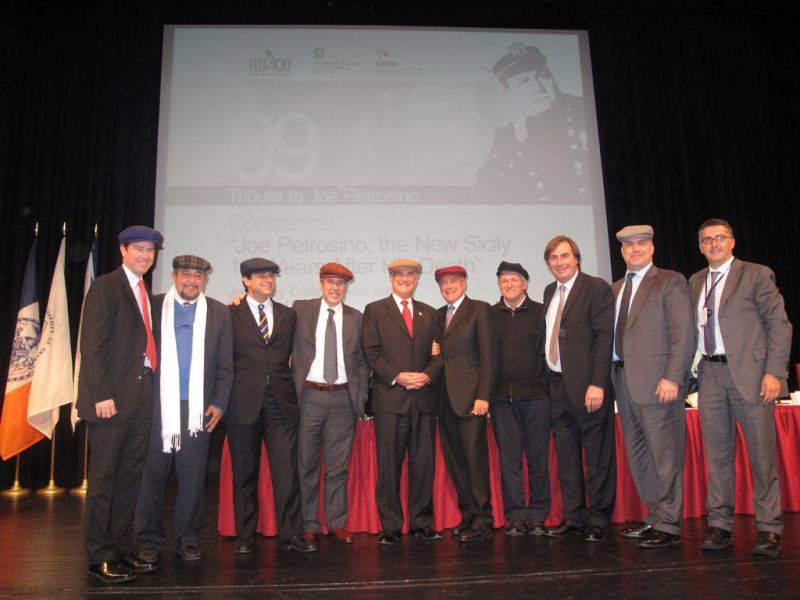

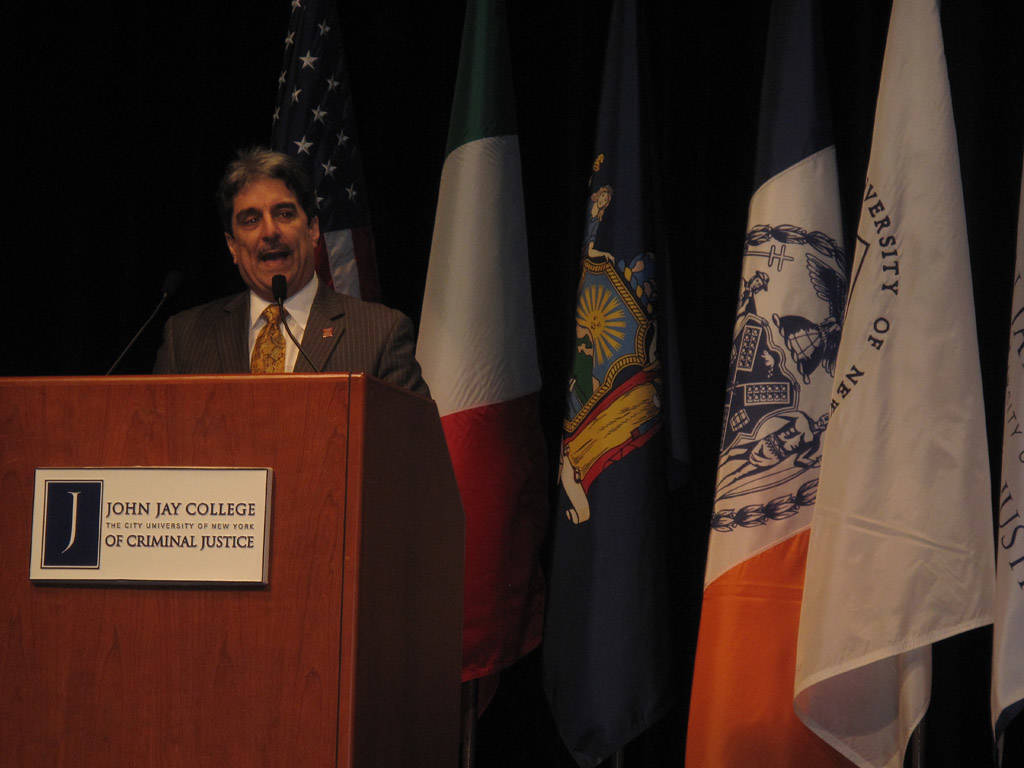

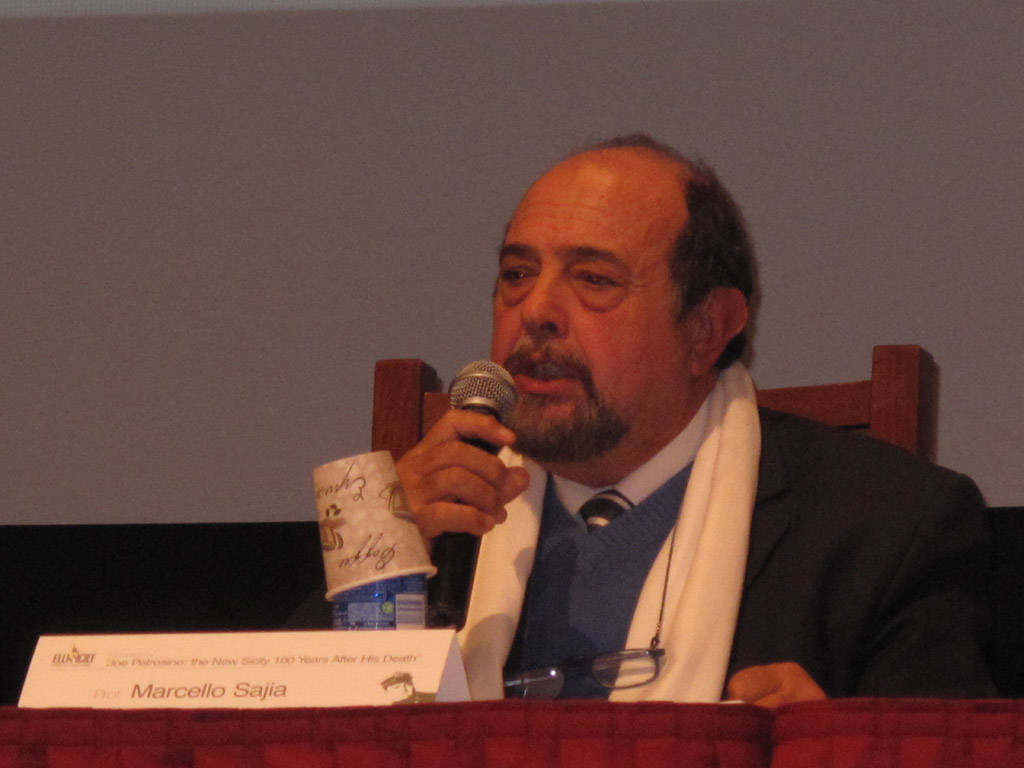
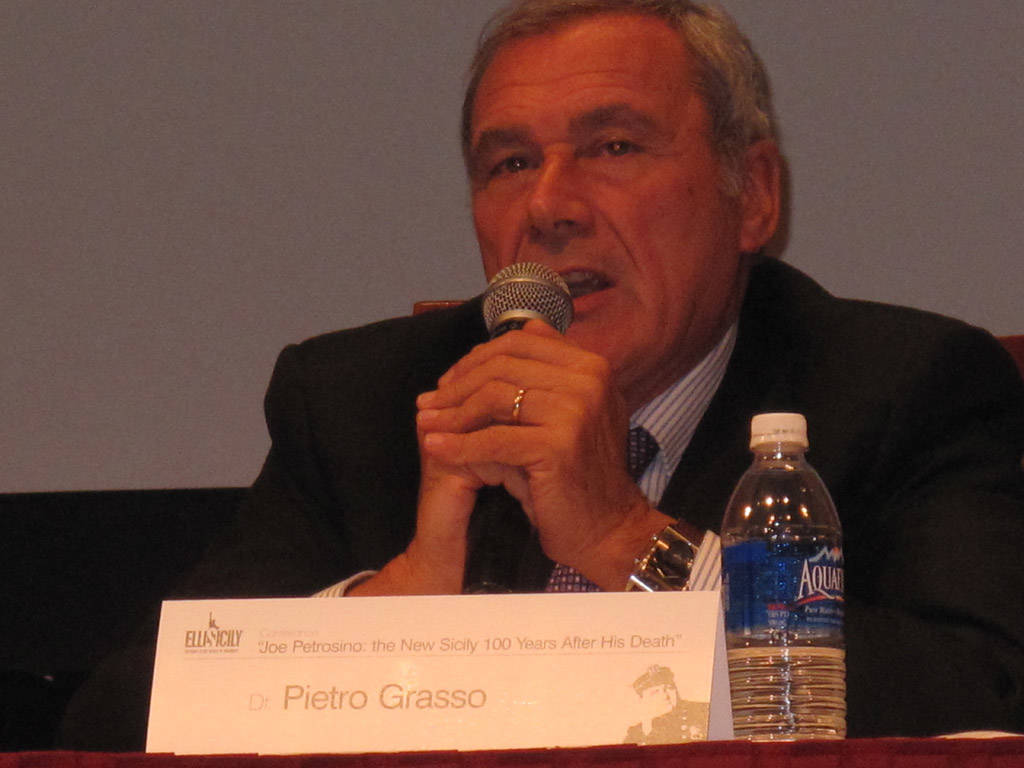
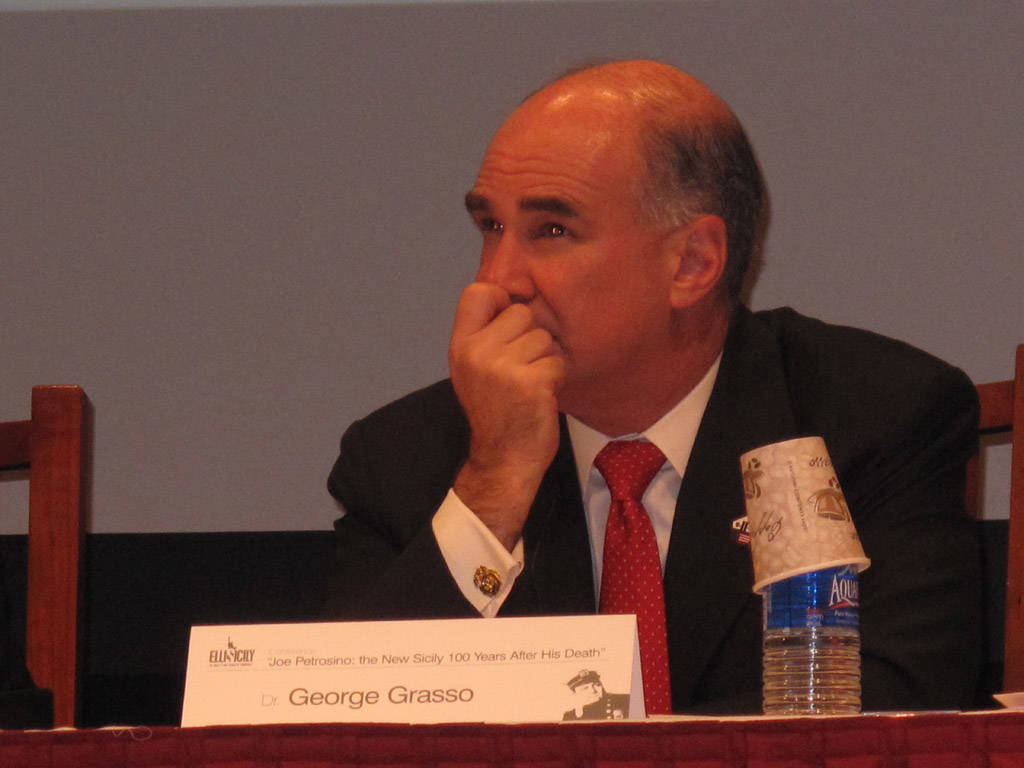







i-Italy
Facebook
Google+
This work may not be reproduced, in whole or in part, without prior written permission.
Questo lavoro non può essere riprodotto, in tutto o in parte, senza permesso scritto.